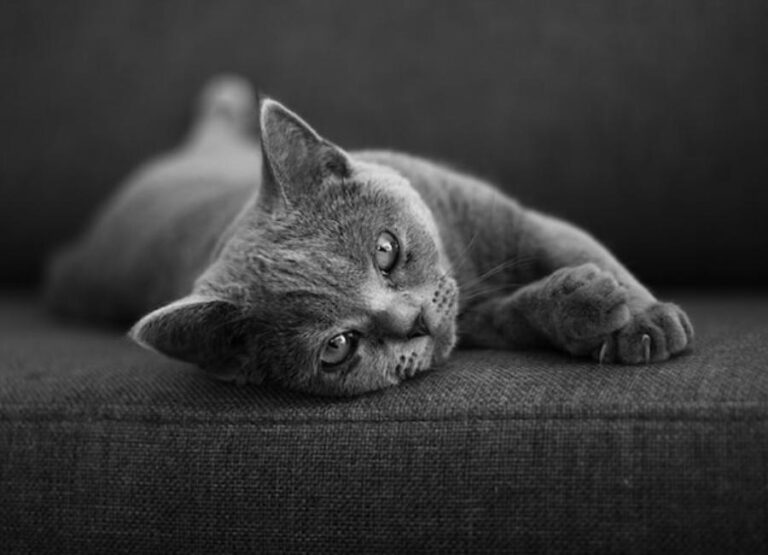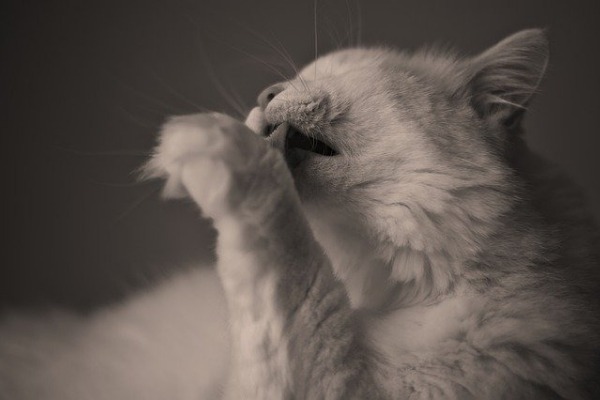Are British Shorthair Cats Good With Dogs [Answered]
![Are British Shorthair Cats Good With Dogs [Answered] Are British Shorthair Cats Good With Dogs](https://petcreeks.com/wp-content/uploads/2023/04/Are-British-Shorthair-Cats-Good-With-Dogs.jpg)
Are British Shorthair cats good with dogs? Let’s find out together…
Are you considering adding a British Shorthair cat to your canine-filled household?
Worried about how they’ll get along with your furry friend? Fear not!
In this short blog post, we’ll explore whether British Shorthair Cats are good with dogs, so you can make the best decision for your animal family.
Are British Shorthair Cats Good With Dogs
Yes, British Shorthair cats are known for being friendly and sociable, so they can get along well with other pets, including dogs.
Additionally, their laid-back nature and tolerance of other animals make them great family pets that get along well with children and other pets.
However, it’s still important to introduce them to dogs gradually and supervise their interactions to ensure they get along well.
It’s also crucial to make sure the dog has a friendly and calm demeanor to avoid any conflicts.
The personality and temperament of British Shorthair cats that makes them get along with dogs
British Shorthair cats make good housemates for dogs because of their kind, laid-back demeanor.
They are unlikely to engage in any altercations with a dog because they are not easily provoked.
In addition, British Shorthairs are quite adaptable and can settle into new habits and situations, which makes them better equipped to accept and get along with dogs.
They can be the perfect companions for both people and other animals because of their loyalty, affection, and peaceful nature.
Furthermore, they can be less threatening to smaller dogs due to their size and laid-back demeanor, making them excellent pets for households with dogs of various sizes.
When British Shorthair Cats and Dogs May Not Get Along
Even though British Shorthair Cats are generally known for being easy-going and friendly cats, not all dogs may get along with them.
The compatibility of a British Shorthair Cat with a dog would depend on the individual temperaments of the animals.
Some dogs may have a high prey drive and may not be suitable to live with cats, including British Shorthair Cats.
Similarly, some British Shorthair Cats may be anxious around dogs or may not be comfortable with their presence.
Therefore, it’s important to introduce dogs and cats gradually and under supervision to ensure that they are comfortable with each other.
Additionally, some breeds of dogs, such as herding, sighthound, or terrier breeds, may not be a good fit for cats, including British Shorthairs.
How to introduce a British Shorthair cat to a dog
Here is the step-by-step process of introducing a British Shorthair cat to a new dog:
Prepare a safe space
Prepare a safe area for the cat to retreat to if they feel scared or uncomfortable before meeting the dog and the cat.
An area containing a litter box, food, water, and toys could be included here.
Make sure the cat has plenty of hiding places and that the door to the room can be closed.
Introduce their scent to each other
Allow the cat and dog to grow acquainted with each other’s scent before the formal introduction.
You can accomplish this by putting the dog’s toys or bedding in the same room as the cat’s, or by switching the bedding between the two pets.
Use a controlled introduction method
Start with a controlled meeting when the dog and cat can see each other but are separated by a barrier.
This might be a screen door or a baby gate.
Maintain brief, supervised contact, and always give the dog praise for positive conduct.
Stick to gradual exposure
You can let the cat and dog spend more time together after they appear at ease in each other’s presence.
Increase their exposure gradually so they can engage for longer periods of time while being closely watched.
Reward and encourage every positive interaction
Reward the dog whenever it behaves well around the cat, such as by playing softly or ignoring them.
This will encourage appropriate behavior and make the cat more at ease with the dog.
Monitor closely
Keep observing their interactions carefully, and remove the animals if one exhibits indications of stress or hostility.
Don’t forget to give the cat lots of time alone in a secure location.
Be patient with both pets
It can take some time and consideration to introduce a dog and cat.
Even though some cats and dogs may never make the best of friends, with time and encouragement, they can learn to live in harmony.
Dogs that get along with British Shorthair Cats
Some examples of dog breeds that are well-known for their ability to get along with British Shorthair cats include:
- Golden Retriever
- Cavalier King Charles Spaniel
- Bichon Frise
- Pug
- Shih Tzu
- Maltese
- Boston Terrier
The capacity of each dog to get along with cats will rely on their particular temperament and training, as well as the personality of the particular cat they are interacting with.
It is crucial to keep in mind that each dog is an individual.
Regardless of the breed, it’s crucial to monitor interactions between dogs and cats at all times to ensure everyone’s safety and welfare.
Factors to Consider When Introducing British Shorthair Cats and Dogs
Here ate some common factors to consider when introducing British Shorthair cats and dogs:
- Size difference: Consider the size difference between the cat and dog to ensure that the cat is not intimidated or harmed by the dog’s size.
- Age difference: Introducing a kitten to an adult dog or vice versa can be challenging, so it’s best to introduce animals that are similar in age.
- Personality: Consider the personality of both the cat and dog. Some dogs are more boisterous and playful, which may irritate or scare a cat.
- Socialization: Ensure that both the cat and dog are well-socialized and have pleasant interactions with other animals.
- Training: Ensure that the dog is trained to respect the cat’s boundaries and not to chase or harm them.
- Supervision: Always supervise the first few interactions between the cat and dog to ensure that they get along well with each other.
- Space: Provide separate spaces for the cat and dog to retreat to, where they can feel safe and secure.
- Feeding: Feed the cat and dog separately and maintain distance between them during meal times to avoid conflict.
- Patience: Introducing a cat and dog can take time, and it’s essential to be patient and allow them to build a relationship at their own pace.
Learn more about leaving your British Shorthair cat alone at home.
Tips to help a British Shorthair Cat get along with a new dog
Here are some tips to help a British Shorthair cat get along with a new dog:
- Introduce the animals slowly and carefully. Allow them to sniff and observe each other from a distance before allowing them to interact more closely.
- Make sure your cat has a safe space to retreat to, such as a high perch or a separate room, where they can feel secure and away from the dog.
- Train your dog to respect the cat’s boundaries and personal space. Teach them not to chase or harass the cat.
- Feed the cat and dog in separate areas to avoid any tension or competition over food.
- Supervise all interactions between the cat and dog until you are confident that they are getting along well.
- Provide plenty of toys and activities for both the cat and dog to keep them occupied and happy.
- Give your cat plenty of attention and affection, so that they do not feel neglected or jealous of the new addition.
- Consider using a pheromone spray or diffuser to help calm and soothe both the cat and dog during the adjustment period.
- Be patient and allow plenty of time for the cat and dog to adjust to each other’s presence. It may take weeks or even months for them to become comfortable being around each other.
Learn more about British Shorthair cat behavior concerns.
Frequently Asked Questions
Are British Shorthair cats naturally friendly with dogs?
Yes, British Shorthair cats are known to be friendly with dogs.
They are generally calm and patient, making them a good fit for households with both cats and dogs.
Can British Shorthair cats get along with any breed of dog?
While British Shorthair cats generally get along well with dogs, it is important to introduce them to each other slowly and carefully.
Some breeds of dogs may not be as friendly towards cats, so it is important to monitor their interactions closely.
Do British Shorthair cats feel threatened by dogs?
British Shorthair cats are generally not easily threatened by dogs.
They are known for being confident and independent, so they are usually not intimidated by other animals.
Do British Shorthair cats like to play with dogs?
Every cat has their own personality, so some British Shorthair cats may enjoy playing with dogs while others may prefer to keep their distance.
However, British Shorthair cats generally do well in households with dogs and can form close bonds with them.
Are British Shorthair cats good at defending themselves against dogs?
While British Shorthair cats are not typically aggressive animals, they are capable of defending themselves if necessary.
However, it is important to supervise their interactions with dogs to prevent any injuries to either animal.
Is it safe to leave British Shorthair cats alone with dogs?
It is generally not recommended to leave any pets unsupervised, especially when they are first getting used to each other.
Always monitor their interactions and never leave them together unsupervised until you are confident that they can get along peacefully.
Conclusion
If you’re looking for a furry companion that can coexist peacefully with your beloved pooch, a British Shorthair cat might just be the answer.
With their calm and amiable disposition, these cats have a reputation for being great with dogs.
So, whether you’re considering adding a new feline friend to your family or looking to adopt a dog-friendly pet, consider a British Shorthair cat.
They could be the perfect addition to your happy, harmonious household.





![Should I Get A Second Cat [12 Pros & Cons] Should I Get A Second Cat](https://petcreeks.com/wp-content/uploads/2023/04/Should-I-Get-A-Second-Cat-768x555.jpg)
